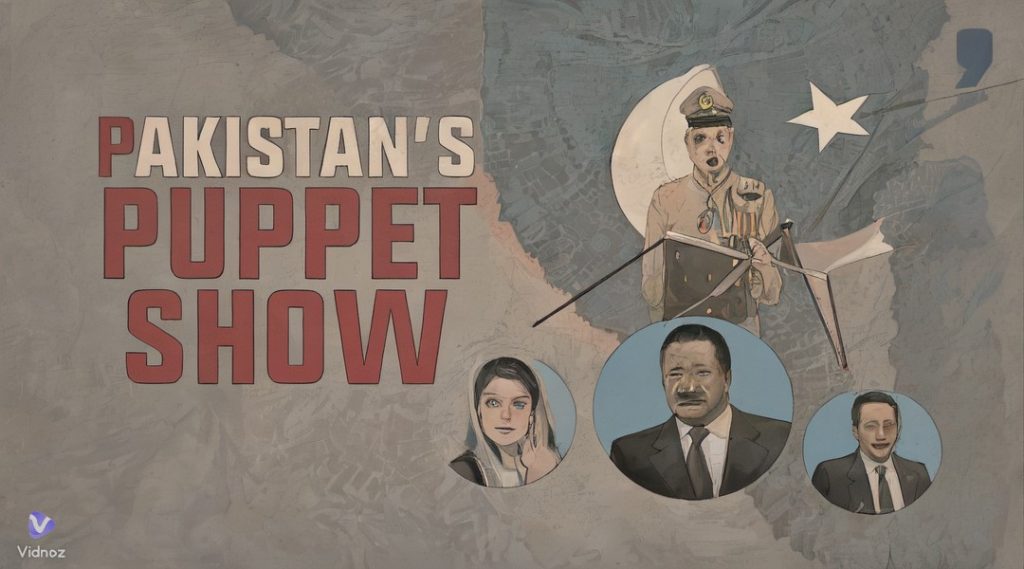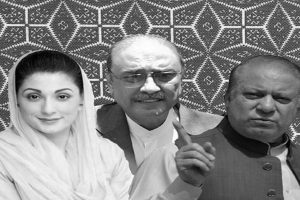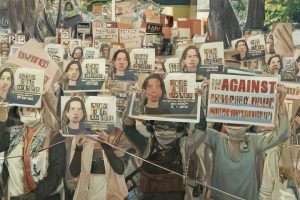By Syed Atiq ul Hassan, Sydney Australia

When I was very young, there used to be puppet shows in the neighbourhood at night. A wall was built with a sheet and a place was decorated like a stage in front of it. Behind the curtain, the puppeteer used to string wooden puppets and show them on the stage, skilfully spinning and dancing in various ways. If the puppet show was from a big company, a regular stage would be set up. It was decorated in a beautiful way.
The puppets in the show used to have different roles. Every character used to be a part of a story, for example king, wazir, pawn, Janta etc. I still remember two characters one is Pate Khan, and the other is Bir Bal and that famous dialogue of Pate Khan and will be played. As children, we were curious to see how these characters were dancing, the way they were making different sounds along with the sound of some indigenous music instruments like flute and paper. We wanted to go behind the curtain to see how all this was happening, but the puppet show was staged in such a way that there was no access to go behind the curtain or the stage. Children, women, and men used to watch this puppet spectacle with great interest. The people of the neighbourhood used to invite puppet shows by donating among themselves and provide entertainment for themselves and their families in the evening and at night. With time came the mechanized and technological era. The puppet show was replaced by the stage theatre in which various stage artists present the stage drama. Be it a puppet show or stage theatre, the story and characters reflect what is happening in the society.
characters one is Pate Khan, and the other is Bir Bal and that famous dialogue of Pate Khan and will be played. As children, we were curious to see how these characters were dancing, the way they were making different sounds along with the sound of some indigenous music instruments like flute and paper. We wanted to go behind the curtain to see how all this was happening, but the puppet show was staged in such a way that there was no access to go behind the curtain or the stage. Children, women, and men used to watch this puppet spectacle with great interest. The people of the neighbourhood used to invite puppet shows by donating among themselves and provide entertainment for themselves and their families in the evening and at night. With time came the mechanized and technological era. The puppet show was replaced by the stage theatre in which various stage artists present the stage drama. Be it a puppet show or stage theatre, the story and characters reflect what is happening in the society.
For the past seventy years, Pakistan has been gripped in a shadowy drama, akin to a puppet show, where unseen puppeteers pull the strings of power from behind the curtains. These elusive showrunners remain hidden, yet their meticulously crafted characters dominate every facet of the nation’s governance. This puppet show of governance is orchestrated by individuals so entrenched in power and dominance that they control not only the ordinary citizens but also hold sway over prominent figures—be they journalists, writers, politicians, or business magnates. They permeate every institution of the state, from the smallest government offices to the highest echelons of power. Even corporate entities, once symbols of progress and prosperity, have fallen under the influence of what is now recognized as the ‘company mafia.’ This enduring grip of power wielded by the puppet master’s has turned the governance of Pakistan into a spectacle where the strings of authority are pulled by those hidden from public view, perpetuating a cycle of control and manipulation.
The pervasive fear, oppression, and brutality inflicted by what can aptly be described as a company mafia have cast a shadow over every stratum of society, from the ordinary citizen to the influential elite. It’s no secret that this malevolent force is none other than the Pakistani army and its intelligence agencies. For the past seventy years, they have commandeered the reins of what is purported to be a democratic state, treating it more like a corporation, imposing their will through martial law, emergencies, and other coercive measures.
One of the gravest afflictions faced by Pakistan and its people is the complicity of the judiciary, which serves as a willing accomplice to this company. Political cases adjudicated in higher courts often reflect the dictates of the establishment rather than uphold justice impartially. Today, the collusion between the military apparatus and the judiciary is an open secret, glaringly apparent to both the people of Pakistan and the international community.
Today, Pakistan finds itself at a pivotal juncture as its third generation, comprising over sixty percent of the nation’s population, emerges into adulthood. Born into the modern era, they are the torchbearers of technological advancement, wielding the power of information dissemination like never before. In a landscape where political narratives can be controlled by corporate entities, today’s youth defy censorship, capturing and sharing the truth with millions via their mobile devices.
This burgeoning generation’s embrace of technology has unnerved traditional power structures, particularly corporate interests. Just as nothing in this world is immutable, the current systems governing society are not exempt from the passage of time. It’s apparent that today’s youth are poised to challenge and reshape the status quo.
Indeed, this new generation appears to be beyond the grasp of corporate influence and manipulation. Their awakening has spurred a reckoning among older generations and the entrenched officials occupying positions of authority in the state, including the judiciary.
A profound testament to this awakening is the recent revelation from six judges of the Islamabad High Court. In a courageous letter addressed to the Chief Justice of the Supreme Court and the Supreme Judicial Council, these judges exposed the undue pressure exerted upon them by elements within the army’s intelligence agency, ISI, to sway their decisions.
This letter has not only lifted the veil on the inner workings of Pakistan’s judiciary, military, and intelligence apparatus but has also reverberated globally. While whispers of clandestine activities were not uncommon among Pakistan’s populace, the official documentation of how corporate interests influence high-level political decisions, as disclosed by esteemed judges themselves, has sent shockwaves worldwide. It’s a sobering moment for Pakistanis who take pride in their nation’s sovereignty, as they confront the stark reality of external influence undermining their own governance.
In the face of these revelations, the people of Pakistan find themselves in a moment of introspection and reckoning. It’s a call to action for a nation to reaffirm its commitment to transparency, integrity, and the rule of law, ensuring that the ideals upon which it was founded endure and thrive in this ever-changing world.
The people of Pakistan refuse to remain silent in the face of the atrocities outlined in this correspondence. This letter marks the initial stride toward bringing this company’s jurisdiction under control. Ideally, it would have spurred the Chief Justice of the Supreme Court into immediate action, convening a full court bench to address the injustices perpetuated by the ISI. However, this is hindered by the judiciary’s entanglement with the company. Any corporation can manipulate judicial decisions through coercion, as revealed by the pressure exerted on judges detailed in this letter.
Imran Khan, Pakistan’s prominent political figure, renowned not only within the nation but globally for his leadership prowess, commands admiration from the country’s youth. They stand prepared to rally behind Khan, anticipating transformative change under his stewardship.
Presently, Pakistan is at a juncture where its people are poised to take to the streets, rallying under Imran Khan’s banner to establish a system founded on justice and equity, thereby dismantling the longstanding oppression. The momentum for change has already ignited, and in the coming weeks, this movement will reverberate throughout every province, city, and capital of Pakistan. The façade of puppetry, upheld for seven decades, will crumble, making way for a genuine, justice-driven democracy in Pakistan.
It’s imperative for the company to act with prudence. The era where the military, intelligence agencies, and state institutions wielded unchecked authority has passed. Any attempt by the company to suppress public dissent through force and bloodshed risks destabilizing Pakistan irreparably. Failure to heed this warning could result in a dire outcome akin to the tragedy of Bangladesh’s secession. (The writer is a Sydney-based journalist, political analyst, writer and a commentator. He is a Senior Community Representative and editor Tribune International, Australia. His email is shassan@tribune-intl.com ).
– END –




